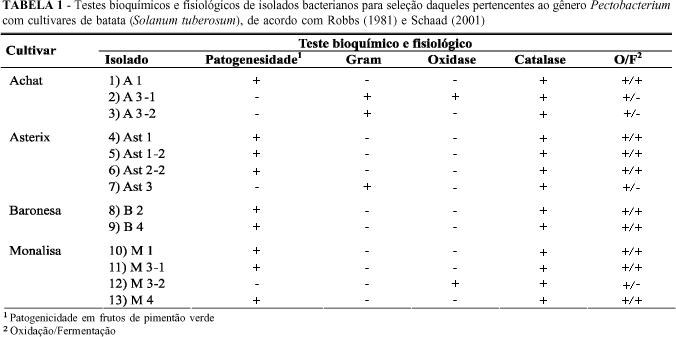Soft rot caused by Pectobacterium carotovorum subsp. atrosepticum, Pectobacterium carotovorum subsp. carotovorum and P. chrysanthemi is a severe disease of potato (Solanum tuberosum) worldwide. Since there is no efficient treatment for soft rot, the use of resistant cultivars is considered the most effective method to reduce crop losses due to this disease. In this research, four potato cultivars were evaluated regarding their resistance to pectobacteria. Tubers inoculated with bacterial suspensions were assessed for mass reduction at five periods (20, 24, 48, 72, and 96 h) after inoculation. The experimental design consisted of a factorial scheme with four cultivars, three bacteria, and four replications. The data on tuber mass loss were transformed into proportion and integrated as the area under the disease progress curve. For all three bacteria, the cultivar Asterix was the less susceptible to soft rot and differed significantly from the others.


